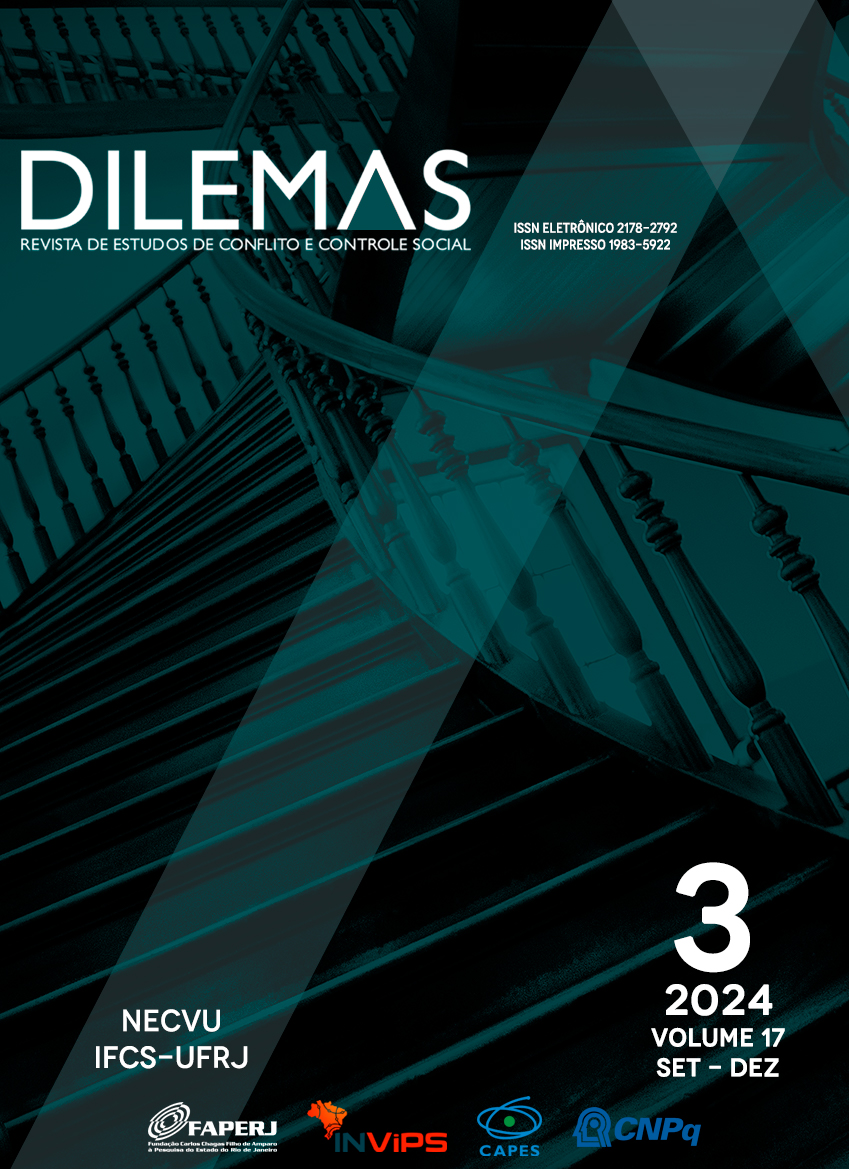The prison system and the constitution of modern slavery by the State
DOI:
https://doi.org/10.4322/dilemas.v17.n3.61309Schlagworte:
Prison System, Modern Slavery, Slave labor, Labor Relations, State-CapitalAbstract
This study, based on Marxian theory, aims to fill an existing gap in discussions on modern slavery, i.e., the role of the state in institutionalized slavery. We analyze how the participation of the state in social relations, which has built and permeates the penal system, has transformed part of the working class, mostly composed of young and Black people that previously were part of the reserve army of labor, into an imprisoned reserve army of labor, allowing it to be exploited under conditions akin to slavery. We used the method of historical materialism to understand the essence of social relations that we observed over an eight-month period using on-site (in loco) research in seventeen prison units in the state of Minas Gerais and semi-structured interviews. Our analysis allowed us to grasp the expression of the working class overcoming common moral sense, as it is irrelevant whether industrial activities are legal or illegal from the perspective of value and capital accumulation. The difference lies in the particularity of Brazilian capitalist development, which imposed on Black people an intense process of impoverishment due to their initial exclusion from the processes of capitalist exploitation, determining a place for this population with numerous obstacles to the sale of their workforce in the sectors developed under capitalism and in unequal conditions of pay. In this way, with the development of Brazilian capitalism, we see the historical constitution of a predominantly Black stagnant superpopulation, in which the maximum amount paid for their working time is the minimum wage, incorporated by the State into slave labor in prison, especially from the political of rehabilitation and private management of the prison system.
Downloads
Veröffentlicht
Ausgabe
Rubrik
Lizenz
Copyright (c) 2024 Ao submeter um texto, autores mantêm os direitos autorais e concedem à DILEMAS - Revista de Estudos de Conflito e Controle Social o direito de primeira publicação, com o trabalho simultaneamente licenciado sob a Licença Creative Commons tipo atribuição BY (CC-BY), que permite o compartilhamento do trabalho com reconhecimento da autoria e publicação inicial nesta revista. Os autores estão cientes, inclusive, que o trabalho circulará livre e gratuitamente, em versão digital.

Dieses Werk steht unter der Lizenz Creative Commons Namensnennung 4.0 International.
Autores mantêm os direitos autorais e concedem à DILEMAS - Revista de Estudos de Conflito e Controle Social o direito de primeira publicação, com o trabalho simultaneamente licenciado sob a Licença Creative Commons tipo atribuição BY (CC-BY), que permite o compartilhamento do trabalho com reconhecimento da autoria e publicação inicial nesta revista.

